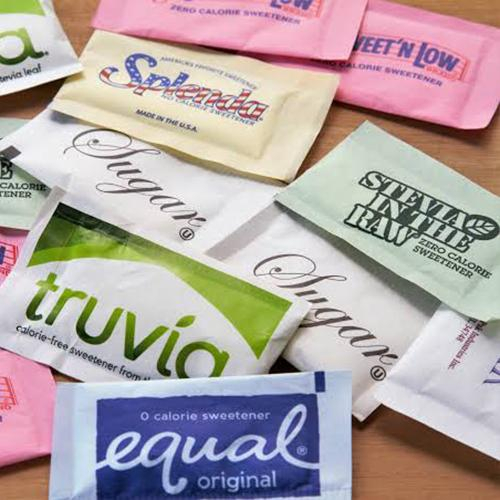
People who use artificial sweeteners may gain weight instead of losing it, researchers from the University of South Australia have found. Though several controlled clinical trials had shown that sweeteners lead to weight loss, the latest study led by UniSA Professor Peter Clifton denies it saying use of low-calorie sweeteners (LCS) is more likely to lead to weight gain.
Prof Clifton said that there has been a 200% increase in LCS usage in place of sucrose, glucose and fructose among children in the last 20 years; in the case of adults the increase is 54%.

The low-calorie sweeteners have an intense sweet flavor without the calories, but the study, which is based on 5,158 adults over a seven-year period, has found that people who consumed artificial sweeteners in large quantities gained more weight than non-users.
"Consumers of artificial sweeteners do not reduce their overall intake of sugar. They use both sugar and low-calorie sweeteners and may psychologically feel they can indulge in their favorite foods. Artificial sweeteners also change the gut bacteria which may lead to weight gain and risk of type 2 diabetes," said Prof Clifton.
Risk of death among older people
Reports have also linked artificially sweetened beverages (ASB) with increased risks of death, cardiovascular disease, strokes and dementia among older people. However, the exact cause of this is not clear.
Prof Clifton cited 13 studies, which investigated the effects of ASB intake on the risk of type 2 diabetes, and said all those studies either didn't find any link or were a positive one. But one of the studies suggested that substituting ASB for sugar-sweetened beverages or fruit juices was linked to 5% to 7% lower risk of type 2 diabetes. "A better option than low-calorie sweeteners is to stick to a healthy diet, which includes plenty of whole grains, dairy, seafood, legumes, vegetables and fruits and plain water," he added.









